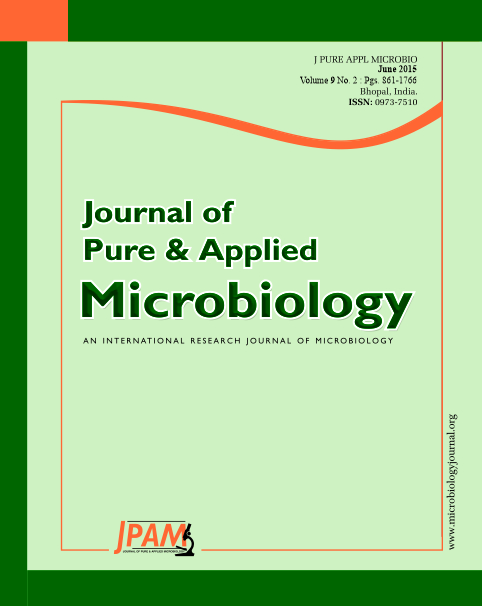Oil spill poses a major problem to the marine environment throughout the world. In order to bioremediate the oil from the marine environment, a study was designed incorporating the bacteria which was isolated from the oil contaminated site of Tuticorin port. Among 28 strains isolated from sediments sample only 06 like Bacillus spk.1, Bacillus spk.2, Bacillus spk.3, Staphylococcus sp., Pseudomonas sp., and Arthrobacter sp. used for further experimental analysis based on the amount lipase produced. The efficiency of crude oil biodegradation was compared with two type strains such as Acinetobacter calcoaceticus and Pseudomonas citronellosis. In order to evaluate the effect of culture conditions on the biodegradation of crude oil, 6 strains were cultured at different temperatures (37 and 45oC) and inoculum concentrations (0.5 and 1ml). Using a Fourier Transform Infrared Spectroscopy (FTIR), the results of degradation of crude oil was depicted by three ways: 1) Fingerprint region, 2) Number of compounds broken down, and 3) Number of compounds lost by percentage of transmittance. On this basis, it was found that Staphylococcus sp., and Arthrobacter sp. have the ability to breakdown the crude oil into a maximum number of compounds (18) while Bacillus spk. 2 and Bacillus spk. 3 possess the ability to degrade certain compounds completely.
Biodegradation, oil, Marine, Bacteria
© The Author(s) 2015. Open Access. This article is distributed under the terms of the Creative Commons Attribution 4.0 International License which permits unrestricted use, sharing, distribution, and reproduction in any medium, provided you give appropriate credit to the original author(s) and the source, provide a link to the Creative Commons license, and indicate if changes were made.


